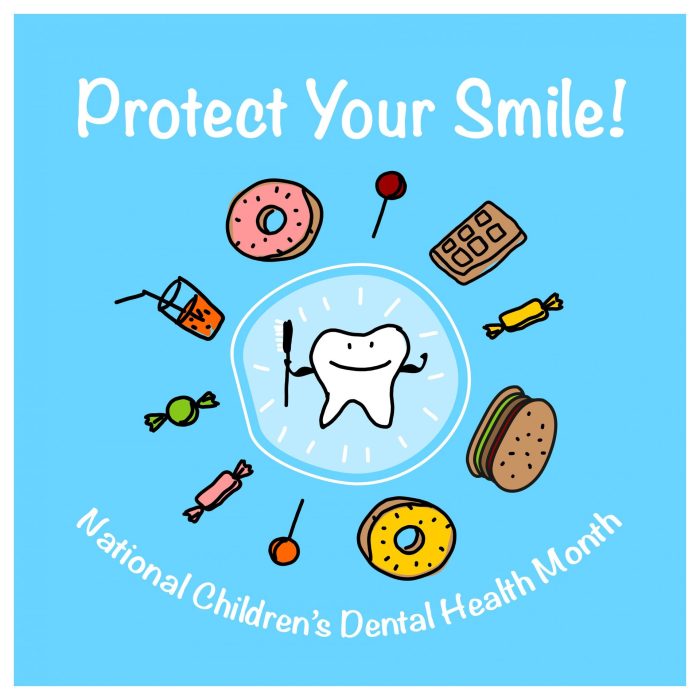
Exploring the essential ways to promote healthy dental hygiene for children, this guide aims to provide valuable insights for parents and caregivers. From the significance of good oral habits to fun ways to teach kids about dental care, this topic covers all aspects to ensure optimal dental health for children.
Importance of Healthy Dental Hygiene for Children
Promoting healthy dental hygiene in children is crucial for their overall well-being. Instilling good oral habits from a young age not only prevents common dental issues like cavities and gum disease but also sets the foundation for lifelong oral health.
Long-Term Benefits of Good Dental Habits
- Prevention of Tooth Decay: Regular brushing and flossing can help prevent tooth decay, reducing the need for costly dental treatments in the future.
- Healthy Gums: Proper oral hygiene can prevent gum disease, which has been linked to more serious health conditions like heart disease and diabetes.
- Confidence and Self-Esteem: Children with healthy teeth are more likely to have good self-esteem and confidence in social situations.
Impact of Poor Dental Hygiene in Children
- According to the American Academy of Pediatric Dentistry, tooth decay is the most common chronic childhood disease, affecting over 40% of children by the time they reach kindergarten.
- Children with poor oral health are more likely to miss school days due to dental-related issues, impacting their academic performance.
- Untreated dental problems can lead to pain, infections, and even malnutrition in severe cases.
Tips for Parents to Promote Healthy Dental Hygiene
Maintaining proper dental hygiene in children is crucial for their overall health and well-being. Here are some tips for parents to promote healthy dental habits in their children:
Establish a Consistent Oral Care Routine
It is essential to establish a consistent oral care routine for children from a young age. Encourage them to brush their teeth at least twice a day and floss daily to remove food particles and plaque buildup.
Regular Dental Check-ups and Cleanings
Parents should prioritize taking their children for regular dental check-ups and cleanings. These visits help in early detection of any dental issues and ensure proper oral hygiene practices are being followed.
Age-Appropriate Toothbrushes, Toothpaste, and Floss
Choose toothbrushes with soft bristles and appropriate sizes for your child’s age. Use fluoride toothpaste recommended by the dentist and teach children how to use floss correctly as soon as they have two teeth that touch.
Fun and Engaging Ways to Teach Children About Dental Hygiene
Teaching children about dental hygiene can be fun and interactive, making it more engaging for them to learn about taking care of their teeth.
Interactive Activities and Games
- Brushing Buddies: Encourage children to brush their teeth by creating a fun game where they can choose a “brushing buddy” (a stuffed animal or toy) to brush their teeth alongside them.
- Toothbrush Timer: Use a fun timer or music playlist to make brushing time more enjoyable. Challenge children to brush their teeth for the entire duration of the song or timer.
- Dental Hygiene Bingo: Create a bingo card with dental hygiene tasks like brushing, flossing, and visiting the dentist. Children can mark off each task they complete for a fun and rewarding game.
Incorporating Good Oral Care Habits
- Morning and Nighttime Routine: Make brushing and flossing part of the daily routine in a playful manner. Encourage children to choose their toothbrush and toothpaste flavors to make it more enjoyable.
- Storytelling: Tell stories or create characters that emphasize the importance of dental hygiene. Children can relate to these characters and learn valuable lessons about taking care of their teeth.
- Family Challenge: Turn oral care into a family challenge by setting goals and rewards for everyone. Positive reinforcement and teamwork can make oral care habits more exciting for children.
Positive reinforcement and rewards play a crucial role in encouraging children to take care of their teeth. Praising their efforts, giving small rewards, or creating a reward chart can motivate children to maintain good oral hygiene habits.
Common Dental Health Issues in Children
Children can face various dental health issues that can affect their overall well-being. It is crucial for parents to be aware of these common problems and take preventive measures to ensure their children maintain good oral hygiene.
Tooth Decay
Tooth decay, also known as cavities, is one of the most prevalent dental issues in children. This can be caused by poor brushing habits, consumption of sugary foods and drinks, and lack of regular dental check-ups. Parents can prevent tooth decay by encouraging their children to brush and floss regularly, limit sugary treats, and schedule routine dental appointments.
Gum Disease
Gum disease can also affect children, leading to symptoms such as swollen or bleeding gums. This can be prevented by teaching children proper brushing techniques, using fluoride toothpaste, and ensuring they have a balanced diet rich in fruits and vegetables.
Misaligned Teeth
Misaligned teeth or malocclusion can impact a child’s bite and overall dental health. Parents should watch for signs such as difficulty chewing or speaking, and consult with an orthodontist if needed. Early intervention can help prevent further complications in the future.
Thumb Sucking
Thumb sucking is a common habit among young children, but if prolonged, it can lead to dental issues such as misalignment of teeth or changes in the roof of the mouth. Parents can help their child break this habit by offering positive reinforcement and finding alternative soothing methods.
Signs of Dental Problems
It is essential for parents to be vigilant about recognizing signs of dental issues in their children. These signs may include tooth sensitivity, pain while chewing, swollen gums, bad breath, or changes in tooth color. Early detection can help address problems promptly and prevent further complications.
Importance of Child Health in Relation to Dental Hygiene
Good dental hygiene is crucial for children as it plays a significant role in their overall health and well-being. Maintaining proper oral care not only helps in preventing common dental issues but also contributes to the child’s overall health in various ways.
Connection between Dental Health and Overall Well-being
- Poor dental hygiene can lead to gum disease, tooth decay, and other oral health problems which can cause pain and discomfort for the child.
- Untreated dental issues can result in difficulty eating, speaking, and sleeping, impacting the child’s nutrition and overall quality of life.
- Oral health problems can also affect a child’s confidence and self-esteem, leading to social and emotional challenges.
Impact of Poor Dental Hygiene on Child’s Health
- Untreated cavities can lead to infections that may spread to other parts of the body, affecting the child’s immune system.
- Poor oral health has been linked to various systemic conditions like diabetes, heart disease, and respiratory infections.
- Chronic oral infections can result in inflammation, which has been associated with other health issues such as diabetes and cardiovascular diseases.
Final Conclusion

In conclusion, prioritizing healthy dental hygiene in children is key to their overall well-being and quality of life. By following the tips and advice shared in this guide, parents can instill good oral care habits in their children from a young age, setting them up for a lifetime of healthy smiles.
FAQ Resource
How often should children visit the dentist for check-ups?
Children should ideally have dental check-ups every six months to ensure early detection of any issues and maintain good oral health.
At what age should children start using fluoride toothpaste?
Children can start using fluoride toothpaste once they are able to spit it out, usually around the age of three. Prior to that, non-fluoridated toothpaste is recommended.
What are some signs that indicate a child may have dental problems?
Signs such as tooth pain, sensitivity to hot or cold, swollen gums, or visible cavities can indicate that a child may be experiencing dental issues.






